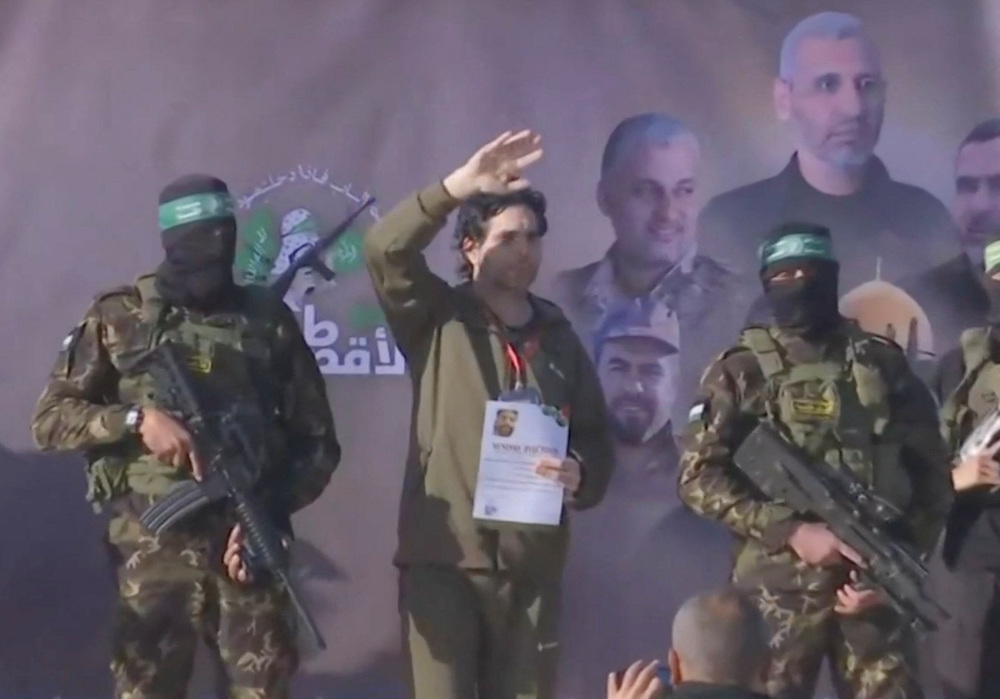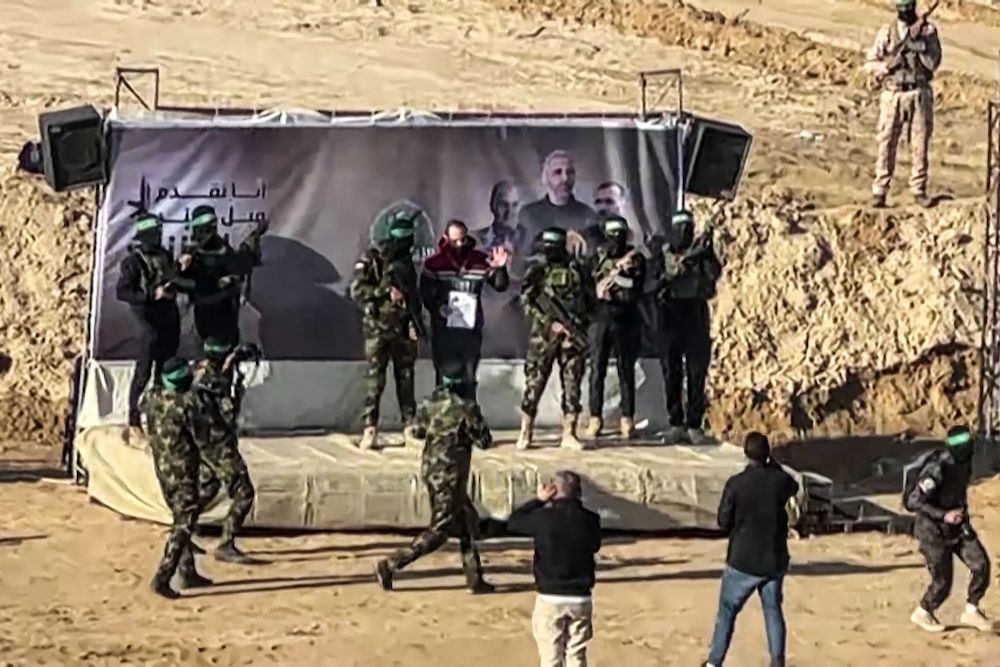ANKARA: The meeting between Turkish President Recep Tayyip Erdogan and Hamas leader Ismail Haniyeh in Istanbul on Saturday has sparked debate over Turkiye’s attempts to play a greater mediating role for the Palestinian cause amid domestic controversies over the ruling government, which has lost support among its conservative electoral base since local elections last month.
Haniyeh’s visit is his first meeting with Erdogan in Turkiye since the start of the Israeli-Hamas conflict in Gaza.
For Wolfango Piccoli, co-president of Teneo Intelligence in London, the meeting is part of Erdogan’s attempts to reposition himself as a credible defender of the Palestinian cause after his recent electoral defeat.
“Hosting the Hamas leader is likely to reinforce the impression in the West that Turkiye is at best a transactional partner, not an ally,” he said.
Turkiye does not consider Hamas a terrorist organization, unlike Washington and Brussels. The country has also strongly criticized Israel’s military operation in Gaza, which Erdogan previously described as genocide. Hamas also established a presence in Istanbul in 2011, although not on par with its political office in Doha.
Ankara has also been a major humanitarian donor to Gaza, alongside several Gulf states, and has actively helped several Palestinians from Gaza receive medical treatment in Turkish hospitals.
“I will continue to defend the Palestinian struggle and be the voice of the oppressed Palestinian people as long as Allah gives me life, even if I am left alone,” Erdogan said in his speech to parliament last Wednesday.
The Turkish president has always been on friendly terms with Haniyeh.
In a recent phone call to the Hamas leader, Erdogan offered his condolences after three of his sons were killed in an Israeli air strike in Gaza.
“Israel will definitely be held accountable before the law for the crimes against humanity it has committed,” Erdogan told Haniyeh, according to an AFP report.
For Betul Dogan Akkas, assistant professor of international relations at the department of international relations at Ankara University, given the current fragile situation in Gaza, there is a significant need for the mediation efforts by Qatar and Turkiye.
“With Haniyeh and other officials based in Qatar, there is now a more effective political bureau compared to the past. The current military balance in Gaza is very critical; they are cornered in Rafah. On the other hand, Hamas needs to build a more strategic power,” she told Arab News.
Akkas thinks that if this Saturday’s visit of Haniyeh contributes to further collaboration between Turkiye and Hamas to address that strategic power deficiency, it would be meaningful.
“Haniyeh could take on a more effective role due to Gaza’s current situation because they need a way out,” she added.
Domestically, however, Erdogan’s Justice and Development Party, known as the AKP, has come under heavy criticism for its flourishing and uninterrupted trade with Israel, even during its military offensive in Gaza.
The AKP’s Islamist rival, the New Welfare Party or YRP, played this trade card during the local elections on March 31, highlighting Erdogan’s failure to halt economic ties with Israel despite his harsh rhetoric against the Jewish state.
The YRP accused the government of applying double standards by strongly criticizing Israel while continuing trade relations. After the elections, the YRP won some local administrations previously held by the AKP.
Turkiye’s exports to Israel exceeded $5.4 billion in 2023, accounting for 2.1 percent of its total exports, according to official data.
Following nationwide criticism, the Turkish Trade Ministry recently imposed restrictions on some 54 categories of exports to Israel, including cement, steel, machinery, construction materials, chemical compounds, and several metal products, and these restrictions are expected to remain in place until Israel declares a ceasefire in Gaza.
On April 16, Erdogan compared Hamas to Turkish independence fighters who resisted foreign occupiers during the liberation of the country and the establishment of the modern Turkish Republic in 1923.
His comments were seen as one of the most blatant endorsements by the Turkish leader since the start of the war in October.
According to Piccoli, while such words may play well with domestic audiences, they are unlikely to be welcomed in Western capitals, including Washington.
Erdogan will make his first official visit to the US since the election of President Joe Biden in 2020 on 9 May. The Palestinian cause is expected to feature in the talks.
Piccoli believes that Haniyeh’s visit is unlikely to lead to any concrete Turkish action against Israel.
“The economic restrictions and Haniyeh’s visit reflect Turkiye’s desire to ensure that the Gaza conflict is not overshadowed by tensions between Israel and Iran, including the Iranian attacks of April 13-14 and the Israeli strikes on Isfahan in the early hours of April 19,” he said.
Earlier this week, Erdogan blamed Prime Minister Benjamin Netanyahu for Iran’s unprecedented attack on Israel, Piccoli added.
On the other hand, how Turkiye will be able to mediate between Palestinian and Israeli negotiators is raising concerns, especially after Erdogan’s harsh criticism of Israel’s military actions in Gaza.
The fate of the hostages held by Hamas since Oct. 7 will also be a source of concern for such mediation efforts.
Turkish Foreign Minister Hakan Fidan visited Qatar April 16-17 and met with Haniyeh and Qatari Prime Minister Sheikh Mohammed bin Abdulrahman Al -Thani.
Turkiye was to host intense diplomatic negotiations on Saturday as Egyptian Foreign Minister Sameh Shoukry was also expected to travel to the country to discuss the situation in Gaza with Fidan.
For Piccoli, while the recent negotiations may go some way to assuaging domestic public anger, the Erdogan government’s outreach to Hamas is likely to reinforce the impression in the US and the EU that Turkiye is no longer aligned with the West and is now — at best — a potential partner rather than an ally.
For the moment, Erdogan has been cautious about commenting on his meeting with Haniyeh.
“We will keep the agenda between us and Mr.Haniyeh,” he said when questioned by journalists on Friday.
Erdogan in mediation talks with Hamas leader amid domestic controversies
https://arab.news/wp7ka
Erdogan in mediation talks with Hamas leader amid domestic controversies

- The meeting ‘is part of president’s attempts to reposition himself as credible defender of Palestinian cause,’ analyst tells Arab News
- Turkiye does not consider Hamas a terrorist organization, unlike Washington and Brussels





























